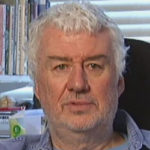MICHAEL McKINLEY. Trump, Australia, Iran, and a Question For Australia
Feb 8, 2017For all of the radical change promised by Donald Trump when he was campaigning, at least one area of continuity is abundantly clear: the preoccupation with, and a distorted understanding of Islam in general and Iran in particular. His appointment of those he refers to as “my generals” to National Security Adviser (Mike Flynn), and Defense (James Mattis) as “my generals” are one of the strongest indicators of this and the militarisation of his counsel. So, too, is his appointment of Steve Bannon to the position of Chief Strategist. All share apocalyptic visions of the war in which the United States is currently in, as does the President himself.
Trump’s views on the public record during the campaign were as clear as they were frightening: he has repeatedly claimed that, following the defeat of Saddam Hussein’s regime, the US should have, and yet could take Iraq’s oil “for economic reasons;” on ISIS he swore to “bomb the shit out of them” and he was unsure of whether radical Islam should, or could be differentiated from Islam in general because, “I think Islam hates us . . . . it’s very hard to define, it’s very hard to separate . . . because you don’t know who’s who.” Thus, he disclosed that he might consider using nuclear weapons in the Middle East.
His generals have an even longer record of such thinking and are perhaps of even greater concern because they all have records of strategic failure and the expectation is that they will endorse the President who, at the same time, has taken steps to ensure that he is not necessarily acquainted with facts from knowledgeable sources that he might find unpalatable. Specifically, he has excluded both the Director of National Intelligence and the Chairman of the Joint Chiefs of Staff from meeting of the National Security Council – described as the “brain” and nerve centre” of the White House – unless the discussions relate to their “responsibilities and expertise.” In their stead he has placed Steve Bannon and his Chief-of-Staff, Reince Priebus. Two of the three generals, Flynn and Mattis, and Bannon deserve close scrutiny.
Flynn defines himself as a warrior crusader against Islam. His views were evident in the book he co-authored with Michael Ledeen in 2014, The Field of Fight: How We Can Win the Global War Against Radical Islam and Its Allies: the US is in not only a “world war” but possibly a “hundred-year war” against an extensive array of enemies, including North Korea, China, Russia, Iran Syria, Cuba, Bolivia, Venezuela, Nicaragua, al-Qaeda, Hezbollah, ISIS, many other terrorist groups, organised criminals, and Mexican drug cartels which actually post signs, in Arabic, at the US – Mexican border marking lanes of entry for Islamic terrorists. Of these, radical Islam, orchestrated by Iran, is the principal threat. Left unanswered was the question as to just how Shi’ite Iran was the “linchpin” of the Sunni Islamic insurgency of ISIS.
James Mattis’ views are generally congruent with Flynn’s. When asked by President Obama to name his priorities as CENTCOM commander, his reply was: ”Number one: Iran. Number two: Iran. Number three: Iran.” In keeping with these, he subsequently proposed a plan to the White House to launch a pre-emptive, but limited “dead-of-night” attack against Iran which risked a regional war which led to him being replaced as CENTCOM commander.
The long-held views, expressed in 2015-2016, of Steve Bannon, Assistant to the President and Chief Strategist, in the Trump White House, are equally disturbing for the crudity of their generalisations and policy prescriptions. All are predicated on his belief that “the Judeo-Christian West . . . a church and a civilisation that really is the flower of mankind” is under threat from the “immense secularisation” which has converged with “radical Islam” to cause the “crisis of our faith.” Accordingly, on the Middle East, they are within the ambit animus noted above: “But you know what, we’re in a war. We’re clearly going into, I think, a major shooting war in the Middle East again.”
But Bannon’s views become even more confusing when he attempts to think on subjects he is clearly not competent in. In Asia, especially where China is concerned, his statements so lack anything approaching an informed understanding, but also bizarrely and dangerously conflate developments in widely divergent geo-strategic and geo-political regions in a manner which calls for world war:
You have an expansionist Islam and you have an expansionist China. Right? They are motivated. They’re arrogant. They’re on the march.
And they think the Judeo-Christian west is on the retreat . .
The one thing the Chinese fear more than America … they fear Christianity more than anything.
We’re going to war in the South China Sea in five to 10 years.
Off to one side and seemingly unnoticed by Australian commentators is the recently passed H.J.Res.10 – Authorization of Use of Force Against Iran Resolution – which specifically authorizes the president to launch a pre-emptive war on Iran at any time of his choosing and without any further Congressional oversight, or input, if he determines it necessary to prevent Iran from obtaining nuclear weapons.
The Question
In light of the above, what national interests did Australian defence policy-makers think they were serving when they ordained that the Royal Australian Navy take part in exercise Unified Trident (which also featured the navies of France, the United Kingdom and the United States) and was held “coincidentally” in the Persian Gulf in late January-early February 2017?
From 1982 to 1988, Michael McKinley taught international relations and strategy in the department of Politics, UWA. From 1988 to 2014 he taught international relations and strategy at the ANU. He is currently a member of the Emeritus Faculty at the ANU.




